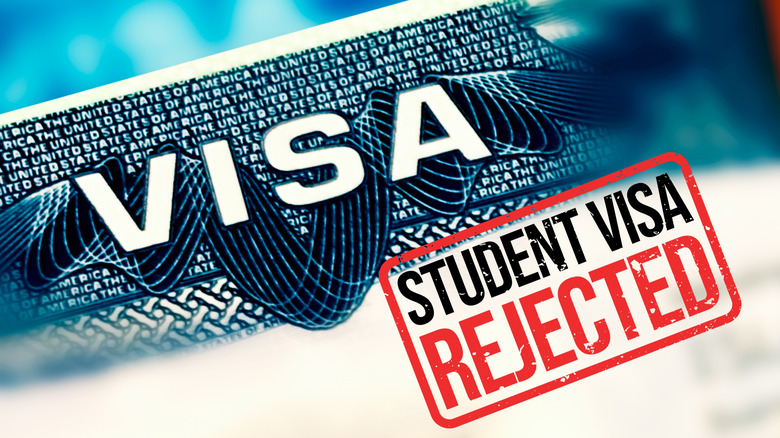What The New 'Visa Integrity Fee' Means For International Tourists Planning A Trip To The U.S.
In July 2025, one month after proclaiming a travel ban for citizens of multiple regions, President Donald Trump signed into law the One Big Beautiful Bill Act, a legislation that includes the controversial introduction of a $250 "visa integrity fee." The fee affects applicants for visas such as B-1/B-2 (tourism and business), F and M (student), J (exchange), and employment-based categories like H-1B, L, O, and P. It does not apply to travelers from countries that enter using the ESTA system, such as the United Kingdom, Germany, and Japan. Canadian and Bermudian nationals are also exempt in most cases. This means tourists from Latin America, Africa, and parts of Asia, who must apply for a visa at a U.S. embassy or consulate, will be among the most affected.
Unlike the standard application fee, which is paid when scheduling a visa interview, the visa integrity fee is charged only if the visa is approved and issued. The $250 fee does not replace the existing MRV application fee, typically $185 or more, but is added on top of it. Some nationalities may also face additional reciprocity fees based on their country of origin. Paying the standard MRV application fee to schedule a visa interview does not guarantee visa issuance; many applicants are rejected after interviews lasting as little as a minute or two.
Will the new visa fee push tourists away from the U.S.?
For international tourists planning a trip to the United States, the new fee presents a significant financial consideration. For families, the extra $250 per person can quickly becomes a major expense. The legislation allows for the visa integrity fee to be refundable, but only under strict conditions. Visa holders must not overstay their permitted period by more than five days, must avoid unauthorized work, and must either leave the country on time or successfully change their immigration status. Refunds would be issued only after the visa expires. Because refunds are uncertain and the process is still being developed, most travelers should budget as if the fee is nonrefundable. For now, travelers should closely monitor announcements from consular authorities to avoid surprises and prepare for the additional cost.
Critics argue the fee will discourage people from visiting the U.S. In March 2025, international visits to the country had already fallen about 10% compared with March 2024, according to the International Trade Administration. The decline has largely been attributed to tariffs, trade wars, and tougher enforcement measures such as detentions at the U.S. border. In addition, cuts to funding for museums, the National Park Service, and other cultural institutions undermine some of the country's most valuable attractions for tourists. The U.S. Travel Association estimates that each 1% drop in inbound visitor spending costs the economy about $1.8 billion in annual export revenue. Analysts at Forbes project the U.S. will lose between $25 billion and $29 billion in tourism revenue in 2025.

